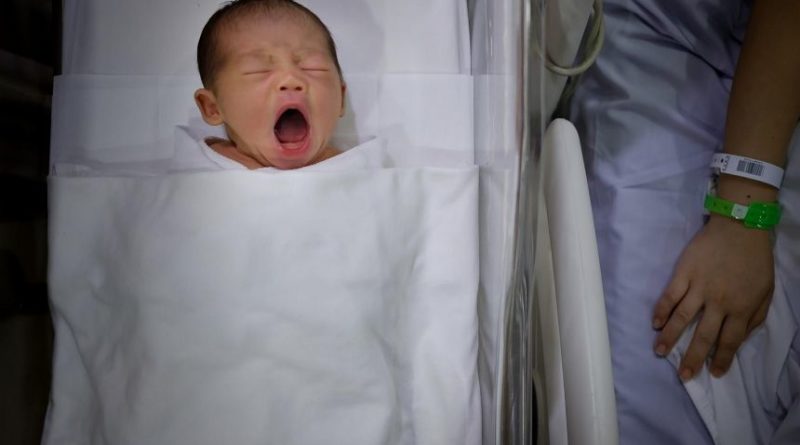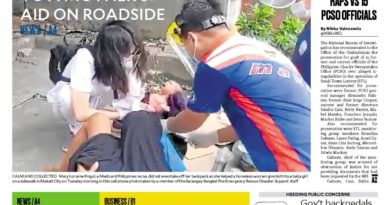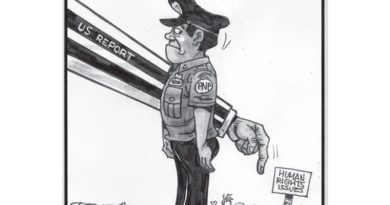HEADLINE: SINGAPORE- COVID RELIEF AID- Budget debate: Parents who have second babies from January to get up to $9,000 in Child Development Account
SINGAPORE – Parents who have second babies from January will get more financial support from the Government through the Child Development Account (CDA).
They will get $6,000 in co-funding, up from the current $3,000 for a first or second child, Minister in the Prime Minister’s Office Indranee Rajah announced in Parliament on Friday (Feb 26).
This is in addition to the initial $3,000 that every child receives in his or her CDA.
About 12,000 children will benefit annually from the higher funding. This applies to Singaporean babies who are the second child, and whose date of birth or estimated date of delivery is on or after Jan 1.
Under the Baby Bonus scheme, savings which parents deposit into the account are matched dollar for dollar by the Government up to a cap.
With the increase, the total government contribution towards a second child’s CDA will go up to $9,000. This is up from the existing ceiling of $6,000 for a first or second child, $12,000 for a third or fourth child, and $18,000 for any subsequent children.
The CDA is a special savings account whose funds can be used at approved institutions to pay for childcare fees, medical expenses and more.
The increased matching by the Government is part of its efforts to provide greater financial support for Singaporean couples who have more than one child, said Ms Indranee, who oversees the National Population and Talent Division (NPTD).
In all, parents can receive up to $24,000 for having a second child. This includes other components like the Baby Bonus Cash Gift, Baby Support Grant and MediSave grant for newborns.
Speaking during the debate on the budget for the Prime Minister’s Office, which the NPTD comes under, she added: “While most married Singaporeans wish to have two or more children, and the majority still do, a growing number have only one child.”
Ms Indranee was responding to several MPs, including Ms Cheng Li Hui (Tampines GRC), Ms Denise Phua (Jalan Besar GRC) and Mr Louis Ng (Nee Soon GRC), who raised concerns about Singapore’s low total fertility rate (TFR) and how couples can be given more support to start families.
Last year, the Republic’s TFR was 1.1, which is a historic low, said Ms Indranee. This is a dip from 1.14 births per woman in 2018 and 2019.
“Covid-19 has caused some Singaporeans to postpone their marriage, resulting in about 10 per cent fewer marriages in 2020 compared to 2019. Others have delayed their parenthood plans,” she said.
“Raising fertility is an uphill task for advanced societies, but we must continue to support those who wish to marry and have children,” she added.
She noted that as at the end of January, almost 10,000 families have benefited from the $3,000 Baby Support Grant that was introduced in October to defray the costs of having a child in this pandemic.
.


To support families, cash benefits will be extended to parents who are not eligible for paternity or adoption leave due to employment arrangements, said Ms Indranee.
For example, they may be on multiple short-term contracts, or their employment contracts may have expired before the birth or adoption of their child.
This group of parents will be supported through the Government-Paid Paternity Benefit or the Government-Paid Adoption Benefit.
“This is similar to the current Government-Paid Maternity Benefit for working mothers, where a cash benefit is given in lieu of the government-paid share of leave if their employment circumstances do not qualify them for leave,” said Ms Indranee.
This applies to parents whose formal intent to adopt or whose children’s date of birth or estimated date of delivery is on or after Jan 1. To qualify, parents must have worked for at least 90 days in the 12 months before their child’s birth or formal intent to adopt.
.

About 500 working fathers and adoptive mothers will receive these cash benefits annually.
In response to Ms Carrie Tan (Nee Soon GRC), who asked if half of the current four months of maternity leave could be used as paternity leave, Ms Indranee urged fathers to first take their own paternity leave. The paternity leave take-up rate was 53 per cent in 2018, up from 25 per cent in 2013, she said.
Today, fathers can also share up to one month of their wives’ maternity leave under the shared parental leave scheme – but only about 5 per cent of fathers opt for this, she added.
To understand the aspirations and concerns of young Singaporeans and families, a series of dialogues led by Ms Indranee and Ms Sun Xueling, Minister of State for Education and Social and Family Development, will be carried out from April to September.
.

These sessions, which are part of the Government’s Emerging Stronger Conversations, will engage a range of groups, from couples at the dating stage to those with children in pre-school and primary school.
Ms Indranee said: “We want to better understand how the thinking and aspirations of Singaporeans, at different stages of their marriage and parenthood journey, may have changed due to the pandemic.”












